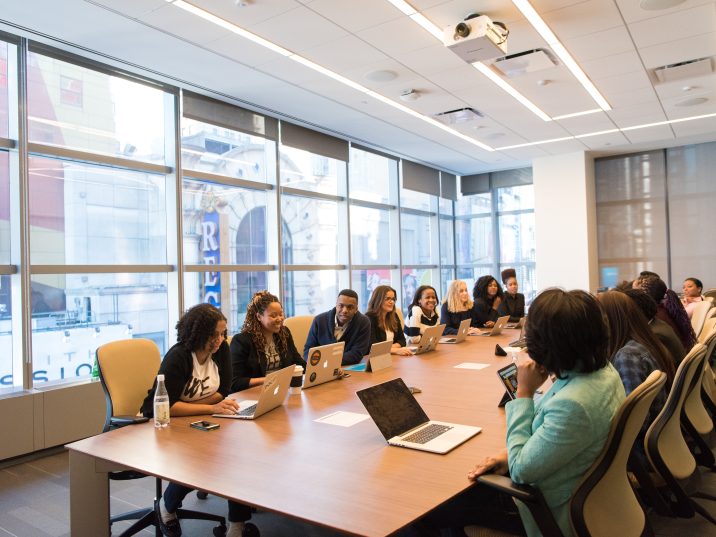Dean Richard Franza’s column appeared in the Sunday, April 24, edition of the Augusta Chronicle. The post can be viewed here.
I recently celebrated my 16th anniversary as a leader/manager in academia. I was asked to take on my first leadership position during spring semester 2006 as the chairman of the Department of Management and Entrepreneurship in Kennesaw State University’s Coles College of Business.
Although I was a fairly junior faculty member (I would be applying for tenure the following fall), I was older than most of my junior faculty peers given my prior career as an Air Force officer. Despite my experiences, I still entered this new position with trepidation and limited confidence.
However, I did have the advantage of having observed great leaders in both the military and academia, providing me with role models to emulate as I matured as a leader, which allowed me to address the insecurity I had as I began my leadership journey.
Insecurity is something that all leaders have to deal with throughout their leadership journeys, and how leaders choose to address insecurity will significantly affect their ability to lead. The best way to deal with insecurity is to be aware of it and address it head on.
One of the best ways I have found to deal with insecurity is to hire good people – in particular, people who are good at things at which you lack skill and confidence. This will make your organization stronger by complementing your skill set with the skills of others. In addition, you need to recognize those individuals’ efforts and give them the credit they deserve.
Unfortunately, many insecure leaders often feel threatened by talented individuals, thinking they are “out for their jobs.” They believe that the best way to “look good” is to either put weak people around themselves or, when they hire good people, take credit for their good work and innovative ideas. Ultimately, the insecure leader will fail because he will have surrounded himself with underperforming sycophants.
A second way to overcome insecurity is to ask questions, seek advice and listen to the opinions of others. A confident leader knows she does not have all the answers and values the experience and intelligence of others. Rather than always thinking she is right, she will see learning as a source of strength.
On the other hand, the insecure leader will not listen to others and sees asking questions and seeking advice as a sign of weakness. The insecure leader needs to always be seen as winning or right, even when it is evident he is not. Insecure leaders are not interested in feedback and tend to dismiss constructive criticism as an annoyance as opposed to an opportunity to learn.
Probably the most important antidote to insecurity as a leader is to be accountable. I have learned to see insecurity and accountability as opposites when it comes to being a leader.
Ultimately, as a leader, accountability is your acceptance of the fact that you are answerable to your personal actions that contributed to attainment of success or failure. Our greatest leaders realize that they are responsible for the results of their team. Poor, insecure leaders are those who shirk accountability and blame others for their failings and the failings of their teams.
I think this is best summed up by Lolly Daskal, founder of Lead From Within, a global leadership and consulting firm, who writes that to stop being insecure, leaders “must become big enough to admit their mistakes, smart enough to correct them, and strong enough to embrace them.”
I believe that all leaders are subject to some level of insecurity. Therefore, leaders must continually revisit how they lead, so that they can work past their insecurity.
I once worked for someone, who to this day, I still consider to be for the most part, a good leader. I worked closely with this person as my leader, and I did everything in my power to help this person be successful. Unfortunately, at some point, I believe this person felt threatened by me and others and began to devalue our contributions to us personally, and to others.
While I thought highly of this leader up to that point, the leader’s insecurity caused our relationship to deteriorate and for me and others to consider other opportunities. However, I still think this instance was an aberration and was not consistent with how that person typically leads.
I have also had my own personal moments of insecurity as a leader. During my time here at Augusta University, I received some feedback that I initially felt was hurtful. However, after taking some time to reflect, I realized that much of the feedback was accurate and constructive, and my response to such feedback would be telling to myself and others as to my ability as a leader.
Rather than sulk or blame others, I took ownership of the issues that were clearly mine and was accountable for some failures that had occurred. While we never like to fail, I learned much about myself and how to be more accountable from this instance that I would likely not have learned if it did not happen and, hopefully, I am now better leader. However, like all of us, I am still susceptible to bouts of insecurity.
As I look back on our most recent Masters Week, an interview my wife and I saw with Tiger Woods helped motivate me to write this column.
While Woods did not have his most successful week in Augusta this year, he could have blamed his lack of success on a number of things, such as weather conditions, his serious injury or lack of competitive play leading up to the tournament. However, he owned his performance as his own, accountable for not playing up to his standard, demonstrating to us the power of accountability over insecurity.
I hope we all choose to be more accountable, which will help us overcome our insecurity and become better leaders.







